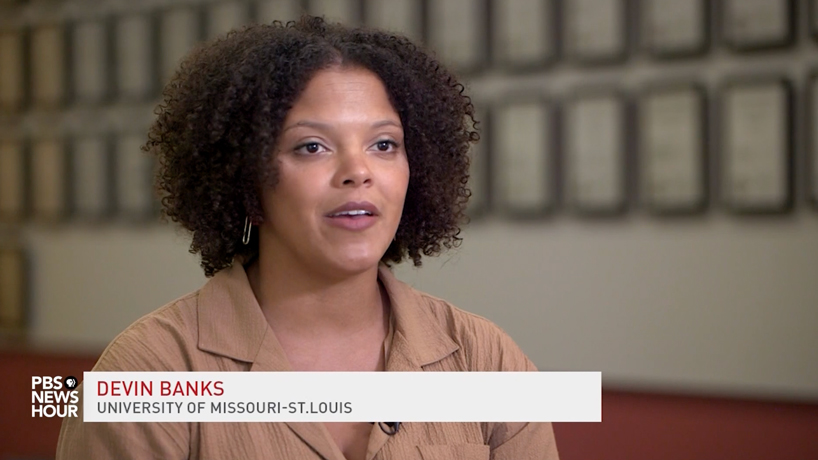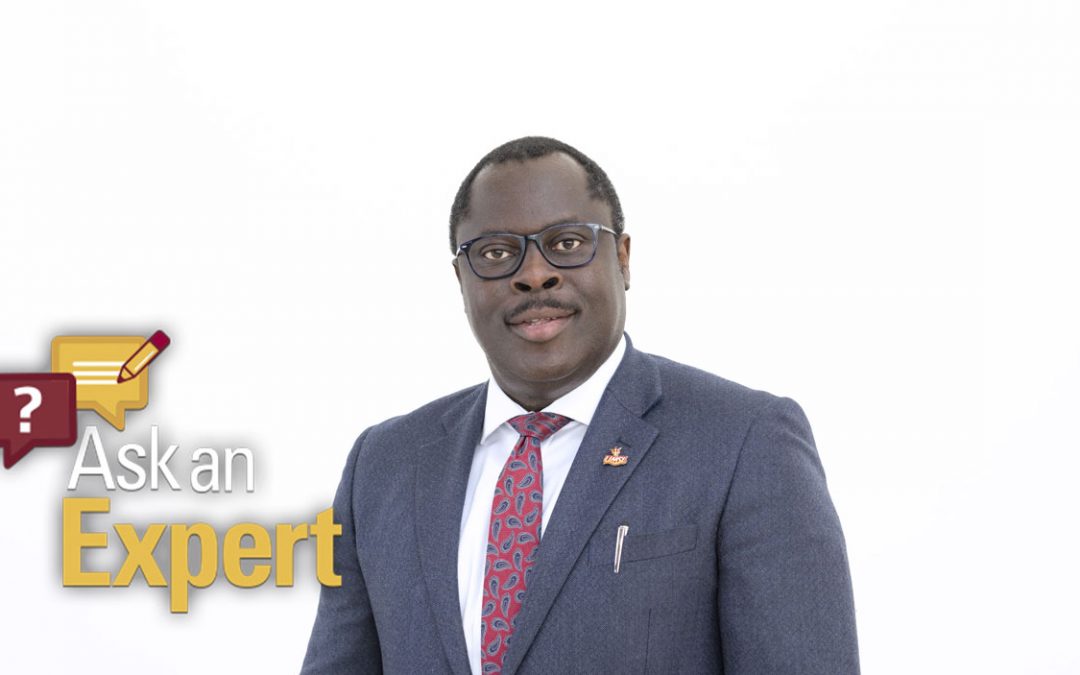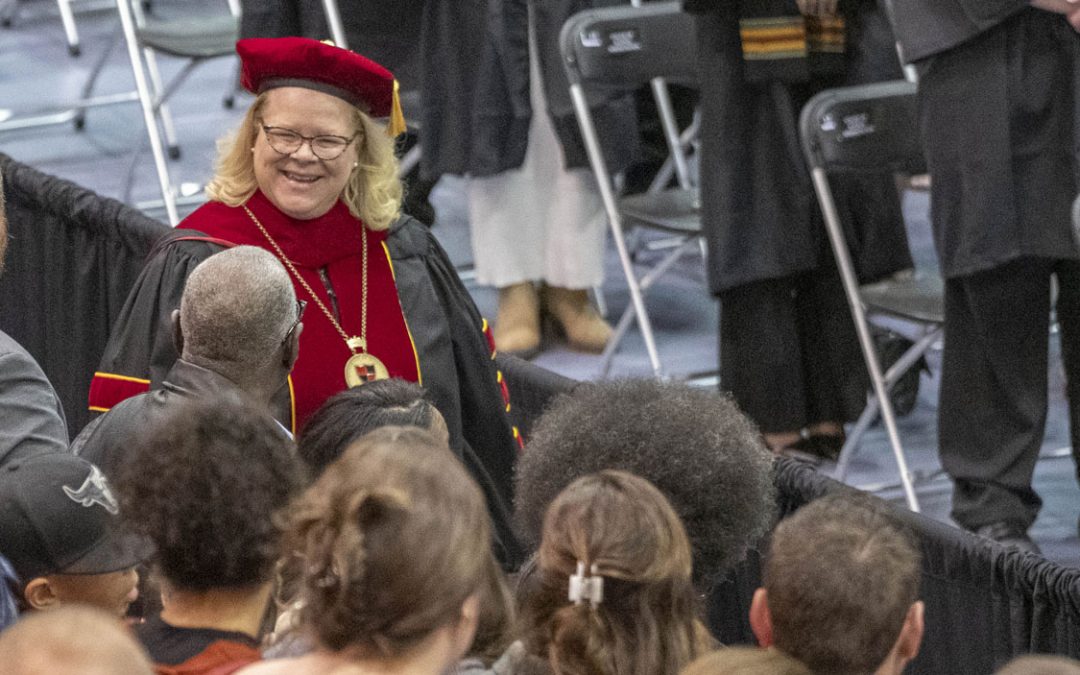
Devin Banks, an assistant professor of psychological sciences and member of UMSL’s Addiction Science Team, talks to PBS NewsHour correspondent John Yang about the outsized impact drug overdose deaths are having on the Black community in St. Louis. (Screenshots)
Provisional data from the Centers for Disease Control and Prevention showed that more than 107,000 people in the United States died from drug overdoses in 2021, the highest total on record and an increase of 15% over the 2020 total.
The St. Louis region has not been spared from this epidemic, which has been spurred on in large part by use of the synthetic opioid fentanyl, which is 50-100 times stronger than morphine.
PBS NewsHour cited data from the University of Missouri–St. Louis in highlighting the rise in overdose deaths in St. Louis since 2015.
PBS NewsHour cited data from the Addiction Science Team at the University of Missouri–St. Louis last week while reporting on the disparate impact the overdose crisis has been having on the Black community. Since 2015, deaths from drug overdoses among Black people in the St. Louis region have climbed nearly 400% – eight times higher than the rise among white residents.
“The overdose crisis is disproportionately affecting Black people because they can’t get their basic needs met,” said Devin Banks, an assistant professor of psychological sciences and member of the Addiction Science Team at UMSL, in an interview with PBS NewsHour correspondent John Yang.
Dr. Kanika Cunningham, a family practice physician with Family Care Health Center and a partner with members of the Addiction Science Team trying to combat the overdose crisis, was featured prominently in the PBS NewsHour report. She talked about some of the inequities Black residents – particularly those with low incomes – have faced, including proximity to treatment facilities.
“Where our treatment centers are situated, sometimes, people have to catch two and three buses to get there,” Cunningham said. “So imagine the burden we put on people to come to us to see us. And then you have a small window of getting there on time, if your bus is late and then you’re told you can’t be seen. There just are so many different issues.”
Cunningham said that in 2020 and 2021, more than 400 Black men died from overdoses in the St. Louis region. That’s more than the number lost to COVID-19 during the same span.
Banks said more needs to be done to help Black men and women get treatment.
“There is a stigma associated with being a person who uses drugs, and there’s a stigma associated with being Black,” Banks said. “So, the people who are being affected recognize that stigma, that discrimination, and that prevents them from feeling safe in treatment settings.”
Watch the full report at PBS.org/NewsHour.















